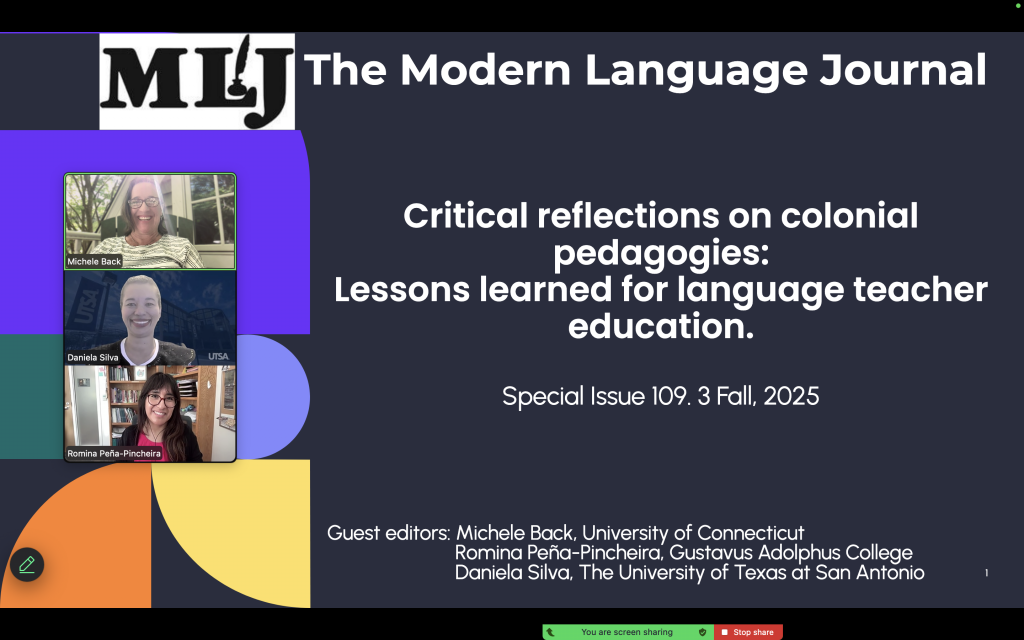Contributed by affiliate faculty Michele Back
On September 5th The Modern Language Journal released a special issue entitled “Critical Reflections on Colonial Pedagogies: Lessons Learned for Language Teacher Education.” The issue was co-edited by Michele Back (Associate Professor, World Language Education, Neag School of Education), Romina Peña-Pincheira (Gustavus Adolphus College), and Daniela Silva (University of Texas at San Antonio). The issue focuses on how language teacher education (LTE) can move away from harmful colonial traditions by examining language teaching practices shaped by colonial history and clarifying differences and overlaps between anti-racist, critical, and decolonial approaches in LTE. The issue also highlights the importance of valuing Indigenous knowledge and multiple ways of learning. Contributing authors used the framework of critical reflection (Liu 2015, Liu et al. 2024) to interrogate teaching methods, curriculum, and assessment.
Contributions came from established and emerging scholars in Norway, Canada, Peru, and the United States and examined LTE practices in several Latin American contexts, including Chile, Guatemala, Peru, and Mexico. Authors also looked at how indigenous languages and ways of knowing can be incorporated into Canadian LTE; incorporating critical reflection into courses for bilingual teacher candidates in the U.S.; and how world language teachers in the U.S. can leverage student home languages (translanguaging) in their classes. In all of the articles, contributors demonstrated how to expose colonial logics and imagine relational, justice-affirming approaches to LTE. Two invited commentaries offer next steps for the important work of decolonizing LTE through critical reflection.
 A virtual launch event of the special issue on September 4th attracted nearly 100 registrants from around the world, and a recording of the event is available for anyone interested in learning more. The special issue itself is available now at this link; four of the articles are open access.
A virtual launch event of the special issue on September 4th attracted nearly 100 registrants from around the world, and a recording of the event is available for anyone interested in learning more. The special issue itself is available now at this link; four of the articles are open access.